In today’s highly competitive construction industry, businesses face a myriad of challenges, ranging from rising material costs and labor shortages to evolving regulations and technological disruptions. As companies strive to stay ahead, the role of strategic consulting has become more crucial than ever. Strategic consultants in the construction sector offer expert guidance to streamline operations, manage risks, and drive long-term growth, ultimately transforming the way businesses approach projects and their overall strategies.
This article explores the value of strategic consulting in the construction industry, the key areas it addresses, and how it can serve as a catalyst for innovation, efficiency, and sustainable success.

1. The Importance of Strategic Consulting in Construction
The construction industry is dynamic and complex, requiring companies to constantly adapt to changing market conditions, client expectations, and technological advancements. Strategic consulting provides an external perspective that can help businesses identify growth opportunities, optimize operations, and navigate challenges with clarity and precision.
Consultants bring deep industry expertise and the ability to analyze a company’s unique strengths and weaknesses. Through tailored recommendations and actionable insights, they help businesses improve decision-making, mitigate risks, and achieve their objectives faster and more effectively.
2. Key Areas of Focus for Construction Consulting
Strategic consulting in the construction industry typically addresses several critical areas, each of which can significantly impact a company’s overall success:
a. Project Management and Efficiency
One of the biggest challenges in construction is managing complex projects on time and within budget. Consultants work with construction firms to implement best practices in project management, utilizing advanced technologies such as Building Information Modeling (BIM) and Lean Construction principles. This not only improves project delivery but also reduces waste and enhances productivity across teams.
b. Cost Optimization and Budgeting
Rising material and labor costs can severely affect a company’s bottom line. Strategic consultants assist businesses in developing more effective cost control strategies, from negotiating better supplier contracts to optimizing resource allocation. By analyzing financial performance, consultants provide solutions that help firms maximize profitability while maintaining high-quality standards.
c. Risk Management
Construction projects inherently involve risks, whether related to safety, legal compliance, or market fluctuations. Consultants specialize in identifying potential risks early and developing mitigation strategies to avoid costly delays or legal disputes. This proactive approach to risk management ensures that businesses can operate smoothly even in uncertain environments.
d. Sustainability and Innovation
Sustainability is becoming a key concern for construction companies, as governments and clients increasingly demand eco-friendly practices. Strategic consulting helps firms integrate sustainable building techniques and materials into their projects, reduce their carbon footprint, and meet regulatory requirements. Additionally, consultants foster a culture of innovation by encouraging the adoption of cutting-edge construction technologies, such as drones, robotics, and green energy solutions.
3. The Role of Technology in Strategic Consulting for Construction
The construction industry is experiencing a technological revolution, with tools such as BIM, drones, AI, and automation transforming the way projects are designed, managed, and executed. Strategic consultants play a pivotal role in helping construction firms embrace these new technologies and integrate them into their operations.
For example, by leveraging BIM, consultants can help companies improve collaboration between teams, detect design flaws early, and optimize the use of resources. Automation technologies can enhance project efficiency by streamlining repetitive tasks, reducing the risk of human error, and enabling companies to complete projects faster.
Moreover, data-driven insights powered by AI and analytics allow consultants to make informed recommendations, helping companies improve forecasting, decision-making, and resource management.
4. Human Capital: The Core of Strategic Consulting
While technology plays an increasingly important role, human capital remains the core asset in the construction industry. Strategic consulting emphasizes the importance of developing a skilled, agile, and collaborative workforce. Consultants often provide guidance on leadership development, talent acquisition, and employee engagement strategies that drive performance and create a positive company culture.
By addressing issues such as talent retention, workforce training, and succession planning, consultants ensure that businesses are equipped with the right talent to sustain long-term success in an industry that is constantly evolving.
5. The Future of Strategic Consulting in Construction
The construction industry will continue to face challenges related to global economic shifts, regulatory changes, and environmental sustainability. Strategic consulting will be essential in helping businesses navigate these challenges and leverage them as opportunities for growth and innovation.
Looking ahead, we can expect consulting services to focus more on digital transformation, sustainability, and resilience planning. Construction companies that partner with strategic consultants will be better positioned to respond to market shifts, anticipate client needs, and stay competitive in a rapidly changing landscape.
Conclusion
Strategic consulting offers immense value to the construction industry by providing expert guidance on project management, cost optimization, risk mitigation, and the adoption of new technologies. By partnering with strategic consultants, construction companies can streamline operations, enhance their competitive edge, and drive long-term success in a dynamic industry.
For businesses looking to thrive in the face of challenges, strategic consulting is not just an option—it is a necessity for growth, innovation, and sustainability.

